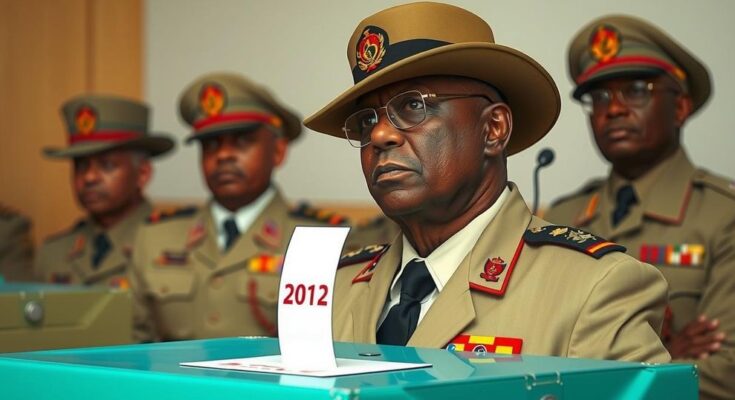Chadians participated in parliamentary and regional elections to end military rule, but major opposition parties boycotted the vote. This electoral event was the first in more than ten years and followed a contested presidential election by Mahamat Idriss Deby, who took over after his father’s death. The opposition’s boycott challenges the legitimacy of this political transition towards democracy in Chad.
Chad held parliamentary and regional elections aimed at concluding a three-year transitional period following military rule. The elections took place amidst a boycott by the leading opposition parties, marking the first parliamentary election in over a decade. This electoral event follows a disputed presidential election won by junta leader Mahamat Idriss Deby, who assumed power in 2021 after the death of his father, former president Idriss Deby Itno, who governed Chad for thirty years. Critics argue that the ongoing opposition boycott may undermine the legitimacy of this electoral process, intended to restore democratic governance in Chad.
The political landscape in Chad has been tumultuous, particularly following the death of longtime president Idriss Deby Itno in 2021. His son, Mahamat Idriss Deby, subsequently took control, leading to a transitional military government that has faced criticism for its electoral conduct and lack of engagement with opposition forces. The recent parliamentary and regional elections are viewed as pivotal in determining Chad’s democratic future, yet the absence of major opposition participation raises questions about the credibility and representativeness of the electoral process.
In summary, Chad’s parliamentary elections signify a critical juncture in its political transition from military rule to potential democracy. However, the boycott by main opposition parties casts doubt on the elections’ legitimacy and the broader quest for democratic governance. Future developments will be essential in evaluating the success of this electoral process and the willingness of the government to engage with all segments of society in building a stable and democratic Chad.
Original Source: www.wdrb.com




